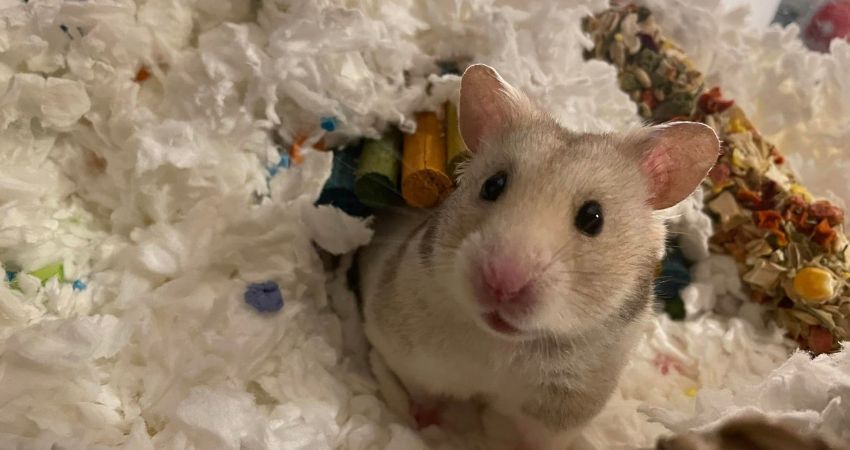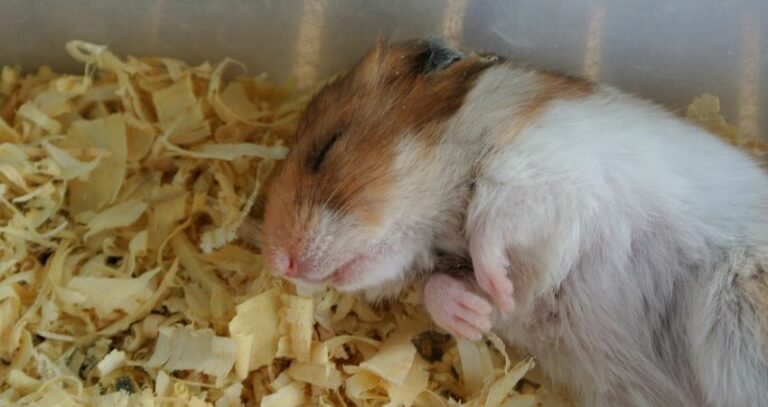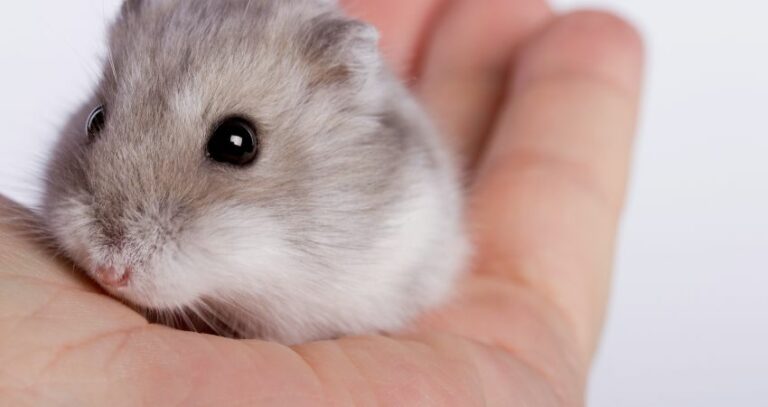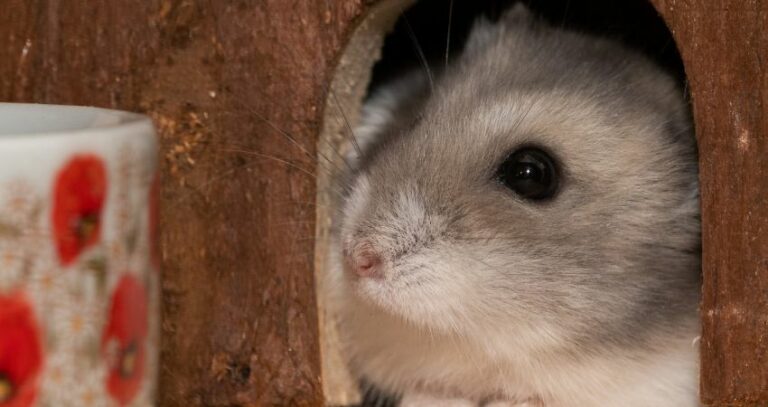Do Hamsters Cry? | Here’s What the Experts Say
Happy hamsters are known for their playful and energetic nature, always exploring and roaming their surroundings. However, it’s important to remember that even these cute little rodents can become sad or upset from time to time. But how would you tell?
Hamsters actually cry, Hamsters cry by producing a variety of vocalizations, including squeaks, chirps, and growls. However, they do not cry tears as humans do. Hamsters have a gland behind the eye that produces fluid, which is then wiped over their eyes to keep them moist. Instead of shedding tears, hamsters make loud and disturbing noises when they want to communicate their emotions.
If your hamster has moist eyes and appears in pain, it may be due to some underlying health problem. Continue reading to learn more about why hamsters cry and related facts.
Why Do Hamsters Cry?
Hamsters are typically quite gentle, making them excellent pets for small children. They enjoy being patted, petted, and even held but should never be squeezed or picked up by their tail. When you pet a hamster, use gentle strokes to avoid startling them. They also enjoy having their bellies rubbed and the back of their neck scratched. When hamsters are content, they may stand on their hind legs to get closer to your hand, begging for more attention.
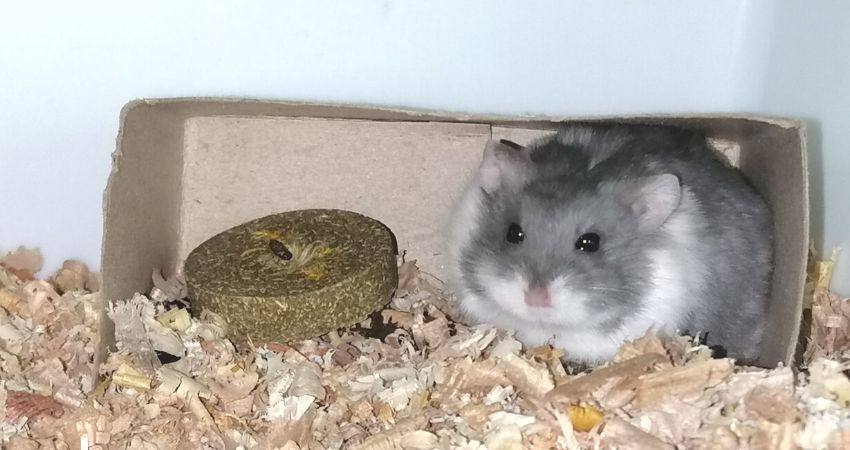
But what happens when a hamster is sad? While experts do not believe that hamsters have the same capacity to feel emotions as humans, they can display signs of distress. Though they do not shed visible tears, they may vocalize to communicate.
It’s something to be aware of if you have a pet hamster. If your hamster appears to be in pain or is making loud, distressed noises for no apparent reason, it’s important to get them the help they need if you notice these signs.
Hamster crying may be caused by different factors, including illness or injury. Some common health problems that may lead to crying include:
1. Stress And Anxiety
Like other small mammals, hamsters are susceptible to high stress and anxiety levels, which can lead them to express their emotions by crying. This can be caused by changes to their environment or even their daily routine. It could be that the pet is unfamiliar with its new environment or new owners. It could even be that there is too much noise or activity around them.

Another probable cause of stress and anxiety-related crying is the fear of predators. Because hamsters are small and vulnerable, they need to be extra cautious of predators. When they hear potential predators or anything unfamiliar, they instinctively cry as a warning sign to alert others to the possible danger.
2. Pain And Injuries
Hamsters will cry if they experience pain or injuries, such as broken bones, cuts, or scrapes. In some cases, the injury may not be visible, such as an internal injury or infection.

It might also be that they have hurt themselves while running on their exercise wheel, got caught between objects, or bit themselves while grooming. Whatever the cause of the injury, if it is severe enough, the hamster will start crying for help.
If you’re petting your hamster and it suddenly starts crying, you might be hurting it without realizing it. This is why it is important to be gentle and observant when handling your pet and to stop if you notice any signs of pain.
3. Unhappy And Lonely
Hamsters are sociable animals, so they may express these feelings by crying when they feel isolated or lonely. This is especially true when they live in a cage without other hamsters.
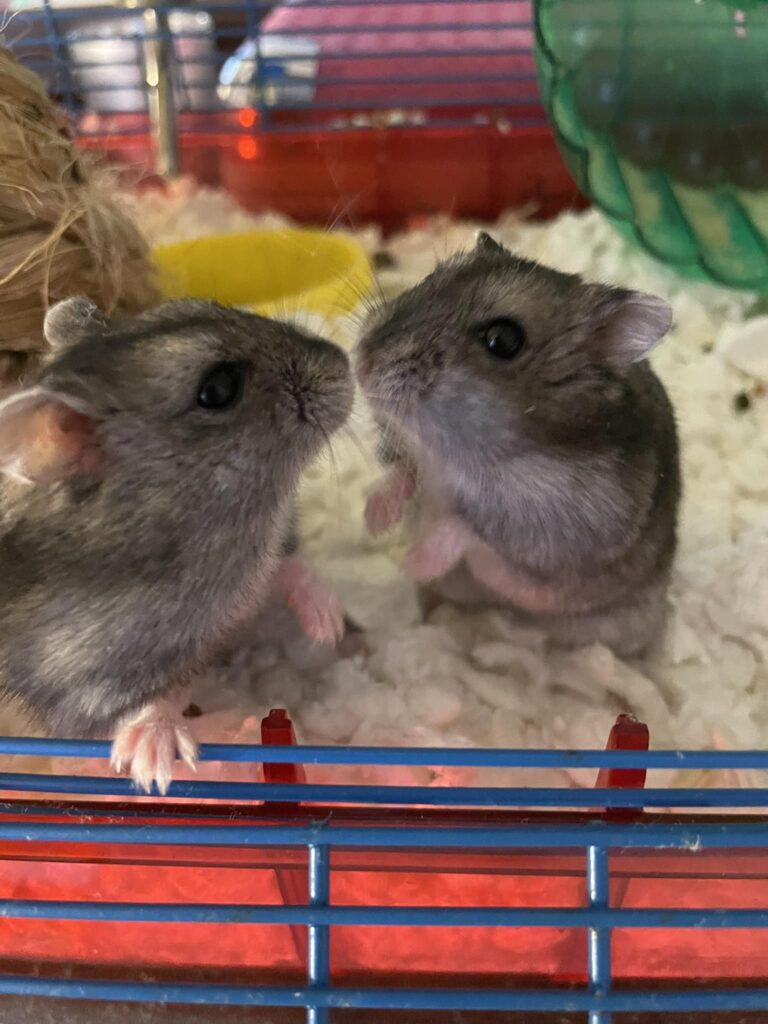
Hamsters can also become unhappy if their environment is not to their liking. This is why it is important to ensure their habitat is comfortable and has the right bedding, food, exercise wheel, toys, and hiding places.
4. Uncomfortable Temperatures
Hamsters are highly sensitive to temperature, so if temperatures are too high or too low, they can become distressed and start crying. This can be caused by too much direct sunlight or a drafty room in which they’re living.
It is also important to ensure the hamster cage is not too close to a radiator or heater, as the heat may be too intense for them. Another factor to be aware of is humidity levels—hamsters need a steady humidity level.
5. Not Getting Enough Attention
Hamsters are used to humans interacting with them daily, so if they don’t receive enough attention, they may cry to get it. This is especially true with younger hamsters, who need social interaction, playtime, and affection to stay healthy and happy.
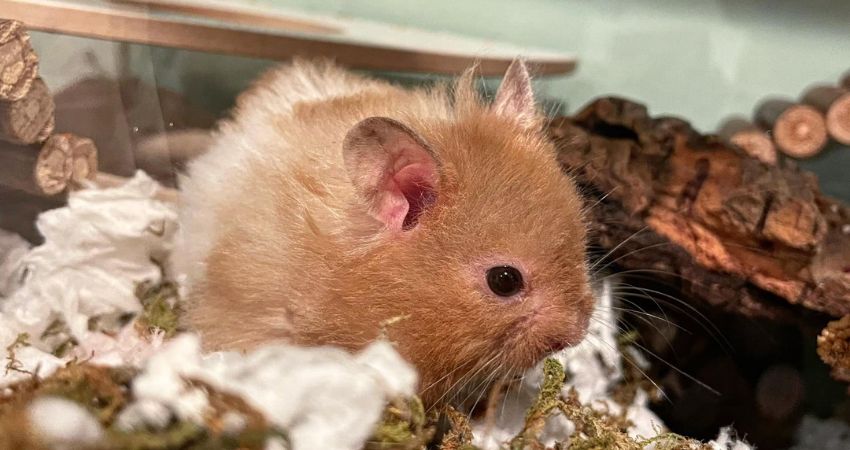
Even adult hamsters need interaction, even for a few minutes a day. If your hamster feels neglected, it might start crying to get your attention.
6. Hunger And Thirst
If a hamster does not get enough food or water, it might start to cry to get attention and meet its needs. This type of crying gets louder as the hamster gets hungrier or thirstier.
7. When Dying
Some hamsters may cry when they are dying. This can signify weakness and tiredness, but it is not the same type of crying hamsters do when they are in pain or discomfort. It is usually just a low and quiet crying sound that lasts a few seconds before fading away.
How To Tell If A Hamster Is Crying
It is important to recognize when a hamster is crying, so you can address the issue before it becomes a problem. The crying of a hamster will depend on the situation.
For instance, a hamster crying due to stress will usually be more of a high-pitched squeaking sound. If a hamster is in pain, it might emit a short, sharp cry. And when a hamster is dying, it will usually make a low and quiet sound.

No matter why a hamster is crying, it is important to be aware of it and to address the issue if possible. Understanding the source of their discomfort may help you provide the right type of care so your hamster can be healthy and happy.
Do Dwarf Hamsters Cry?
Yes. Like all hamsters, dwarf hamsters don’t shed tears, but they do make noises such as squealing, squeaking, and screaming when they are stressed, hurt, or afraid.
Do Hamsters Cry In Their Sleep?
Yes. You may hear the hamsters make noises in their sleep, such as squeaking or chirping when dreaming. It could be a sign of fear or discomfort.
Why Do Baby Hamsters Cry?
Baby hamsters cry to communicate with their mother. They may be hungry, cold, scared, or need comfort.
The Bottom Line
Some hamsters do cry, usually due to reasons such as hunger or thirst, lack of social interaction, or being in pain or discomfort. It is important to recognize when a hamster is crying so you can address the issue before it becomes a problem. Some common signs of crying in hamsters include high-pitched squeaking, short, sharp cries, or low and quiet sounds.
